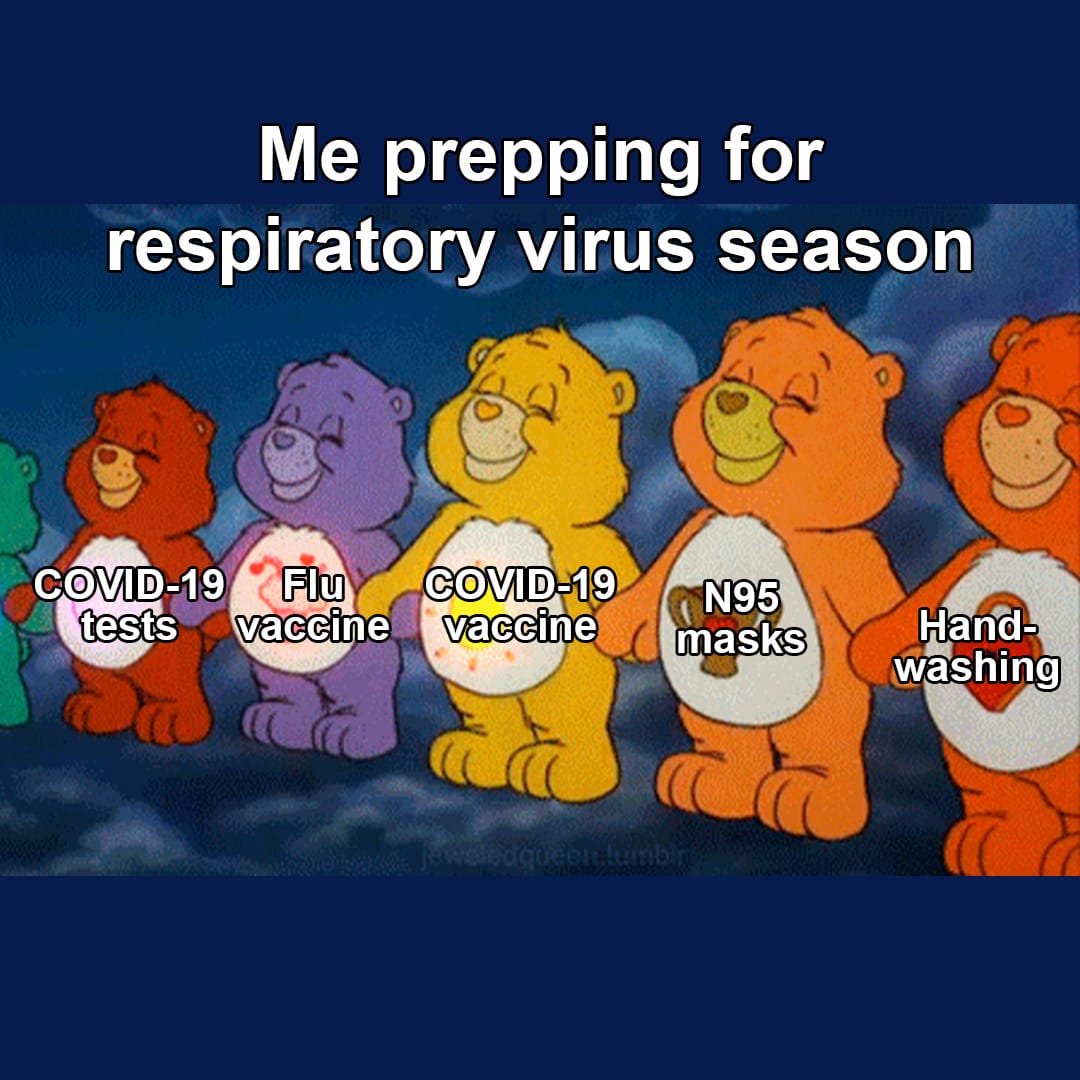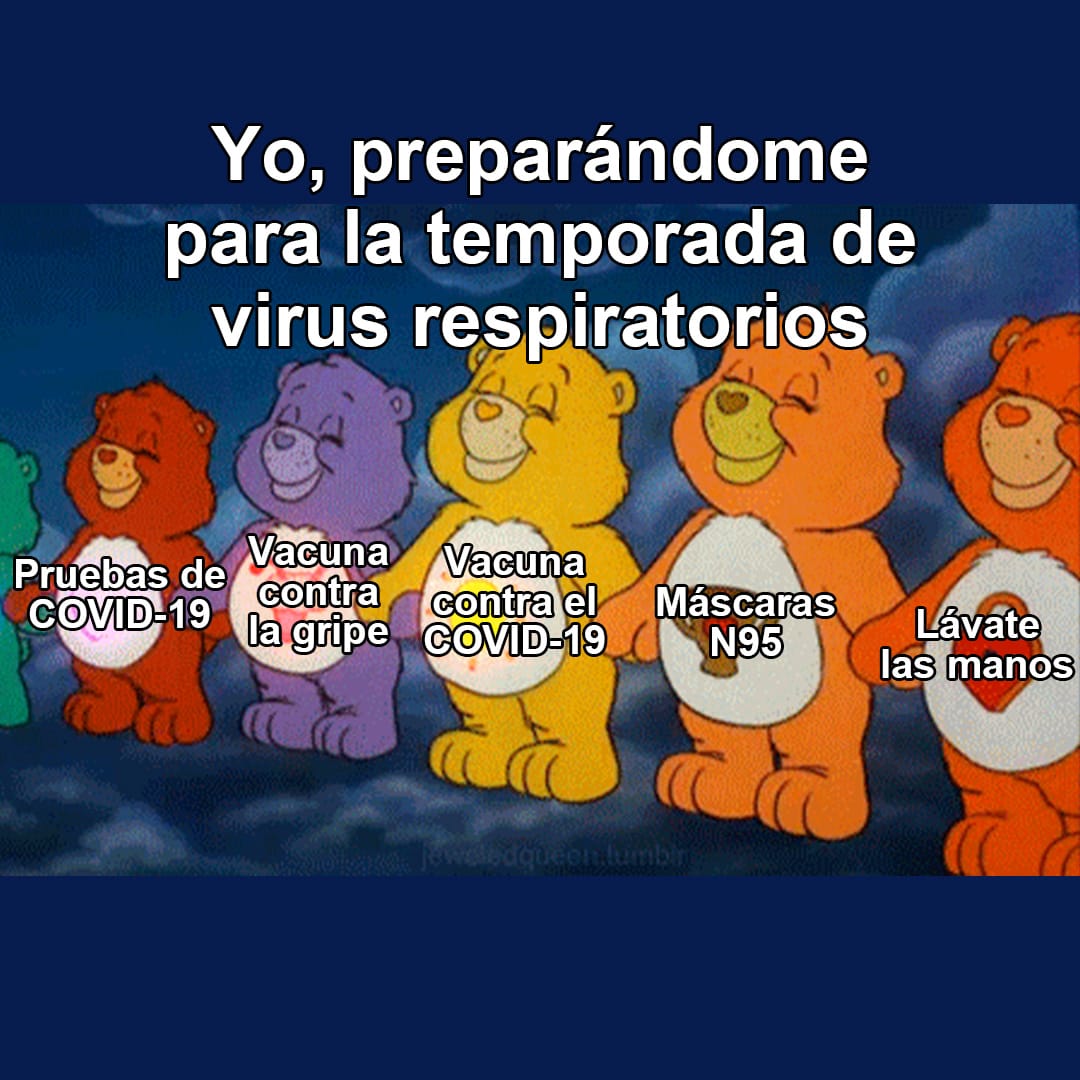Survey finds most U.S. adults don’t plan to get fall vaccines
This past month, a new survey found widespread apathy and hesitancy about respiratory diseases and fall vaccines among U.S. adults, with less than 40 percent planning to get vaccinated. Results from the survey were published less than two weeks after the Florida surgeon general released another statement contradicting federal COVID-19 vaccination guidance. It’s clear that the persistent spread of false claims about vaccines continues to impact public trust in immunizations, especially when viral, emotionally-fraught videos discussing alleged vaccine injuries are also influencing conversations. We’ve provided summaries of these trending narratives, below.
For even more resources, check out the menu above for real-time insights, training resources, and more. Specifically curated for people working in health care and public health, these links provide actionable content to help navigate today’s information landscape.
Trending narratives from the past month
Survey finds most U.S. adults don’t plan to get fall vaccines
A recent National Foundation for Infectious Diseases survey revealed hesitance, distrust, and safety concerns about respiratory disease vaccines. The survey found that while two-thirds of U.S. adults know that flu vaccination is the best protection against the flu, less than half actually plan to get the flu vaccine. Only one in four respondents said that they definitely planned to get an updated COVID-19 vaccine. Among eligible respondents, 38 percent said they planned to get an RSV vaccination, and 44 percent said they planned to get a pneumococcal vaccine. Less than one in five expressed concern about any respiratory infections, although concern about infections and willingness to get vaccinated was higher among those who were at higher risk. The most common reasons for not getting vaccinated were safety concerns, general vaccine distrust, and the belief that vaccines are ineffective. Several social media users blamed poor communication from public health leaders for the declining interest and trust in disease mitigation efforts. Read the full survey here.
Florida surgeon general discourages COVID-19 vaccination
On September 12, the Florida Department of Health issued updated guidance advising against the use of updated mRNA COVID-19 vaccines, contradicting federal health officials. The guidance claims that updated vaccines have not been tested properly for safety and effectiveness, highlights several rare adverse events, and repeats the myth that mRNA vaccines can potentially alter DNA. Notably, the Florida surgeon general recommends that patients who are at high risk from COVID-19 be directed toward non-mRNA vaccines and make lifestyle changes like improving diet and exercise to reduce the risk of severe illness. The guidance does not, however, mention Novavax’s protein-based COVID-19 vaccine or explain what non-mRNA vaccines are available. Read the fact check here.
Video of alleged vaccine injury goes viral
A woman with the rare blood disorder paroxysmal nocturnal hemoglobinuria (PNH) claims that vaccinations required before her treatment triggered severe symptoms of the disease, including abnormal blood clotting and skin discoloration. The woman claims in a series of videos that she was required to get DTaP (which is administered to children, while adults receive Tdap), pneumococcal, and meningococcal vaccines before receiving treatment. In the videos, she also indicates that her family is anti-vaccine, that she had never received a vaccine before age 23, and that prior to the flare-up, she had refused treatment for her condition, which can be fatal. Some PNH treatments cannot be administered to people who haven’t received certain vaccines because the treatments drastically increase the risk of getting these infections, which can be life-threatening to PNH patients. Additionally, medical records that the woman released confirm that when her flare-up occurred, she had a viral infection that is known to trigger severe PNH symptoms. Vaccine opponents are circulating the story with images of the woman’s symptoms, claiming it is proof that vaccines are dangerous and shouldn’t be mandated. Some people also appear to falsely suggest that the woman developed PNH after being vaccinated, despite her saying she was diagnosed months before. This month, the story received millions of views across multiple social media and video streaming platforms. Read the fact check here.
What you might say in response
Safe and effective vaccines for multiple respiratory diseases are available this fall.
- Vaccine-preventable respiratory diseases like COVID-19, the flu, and RSV can make you and your loved ones very sick, especially infants and young children, older and pregnant adults, and immunocompromised people.
- The CDC recommends that everyone 6 months and older get updated flu and COVID-19 vaccines.
- A single RSV vaccine dose is recommended for pregnant and older adults, while a pneumonia vaccine is recommended for young children, older adults, and other high-risk individuals who are eligible.
- These vaccines are the best protection against potentially serious diseases and can be safely administered at the same time with the approval of a health care provider.
Updated vaccines are the best and safest way to protect yourself and your loved ones against COVID-19.
- Like annual flu vaccines, updated COVID-19 vaccines are a better match for currently circulating variants, and getting an updated vaccine will help to protect you against severe illness, hospitalization, long COVID, and death.
- All approved COVID-19 vaccines—mRNA-based and otherwise—are safe and effective. mRNA vaccines are easier to update to fight new variants than protein-based vaccines like the Novavax COVID-19 vaccine, which may be a good option for those who have concerns about mRNA vaccines.
- Vaccination provides reliable protection against the worst of COVID-19. There’s no evidence that unproven and “alternative” treatments like vitamin D or ivermectin have any effect against COVID-19.
- No widespread safety concerns related to mRNA vaccines have been identified in over four years of research and monitoring. There’s no scientific basis for claims that DNA in vaccines can alter a recipient’s DNA.
Serious vaccine reactions are extremely rare and need to be verified by health authorities.
- There is no evidence of any connection between the woman’s condition and any vaccine. The woman’s statements and medical records show that she had an existing, untreated disease that a viral infection may have triggered.
- Health authorities carefully monitor potential adverse effects of vaccines, and it’s up to medical professionals to determine if any adverse events have occurred. Along with numerous public health and medical experts who have disputed the claim, the CDC stated that there is no record of any vaccine triggering the types of symptoms described in the videos.
- Vaccinations are important for everyone. For people undergoing treatments that weaken their immune system or otherwise make them more susceptible to disease, vaccines are a lifesaving necessity that may even be required before certain treatments.
What we’re reading
- Infodemiology.com: Health care providers are prepared to talk to their patients about fall vaccines, but may underestimate COVID-19 risk
- National Foundation for Infectious Diseases: 2024 National Survey: Attitudes and Behaviors about Influenza, COVID-19, Respiratory Syncytial Virus, and Pneumococcal Disease
- CDC: COVID-19–Associated Hospitalizations and Maternal Vaccination Among Infants Aged <6 Months
- NPR: To combat misinformation, start with connection, not correction
Studies and trainings
Interested in learning more about how to debunk false claims with patients? Check out the Infodemiology Training Program. In videos that range from 5 to 10 minutes each, the program introduces health care providers to the basics of infodemiology and provides you with actionable skills to help improve patient care. Get started today.
Quick response media assets
Below, we've provided a social media asset in English and Spanish. Use these assets on social media to fight false claims and help provide your network with accurate information. Just right-click the asset, or press and hold on mobile, to download.

Proposed social copy:
Friendly reminder: Take care of yourself and your family this respiratory virus season🍂.
Get up to date on the flu and COVID-19 vaccines, get tested, wear a mask in crowded spaces, and wash your hands to ensure everyone stays happy and healthy this fall and winter.
#VirusSeason

Publicación propuesta:
Un recordatorio amistoso: Cuida de ti y de tu familia durante esta temporada de virus respiratorios🍂.
Ponte al día con las vacunas contra la gripe y el COVID-19, hazte la prueba, usa mascarilla en espacios concurridos y lávate las manos para que todos se mantengan felices y sanos este otoño e invierno.
#TemporadadeVirus
The Health Care Infodemiology Brief is brought to you by PGP, the health care leadership of the Trusted Messenger Program, and Infodemiology.com’s sponsors and partners.
